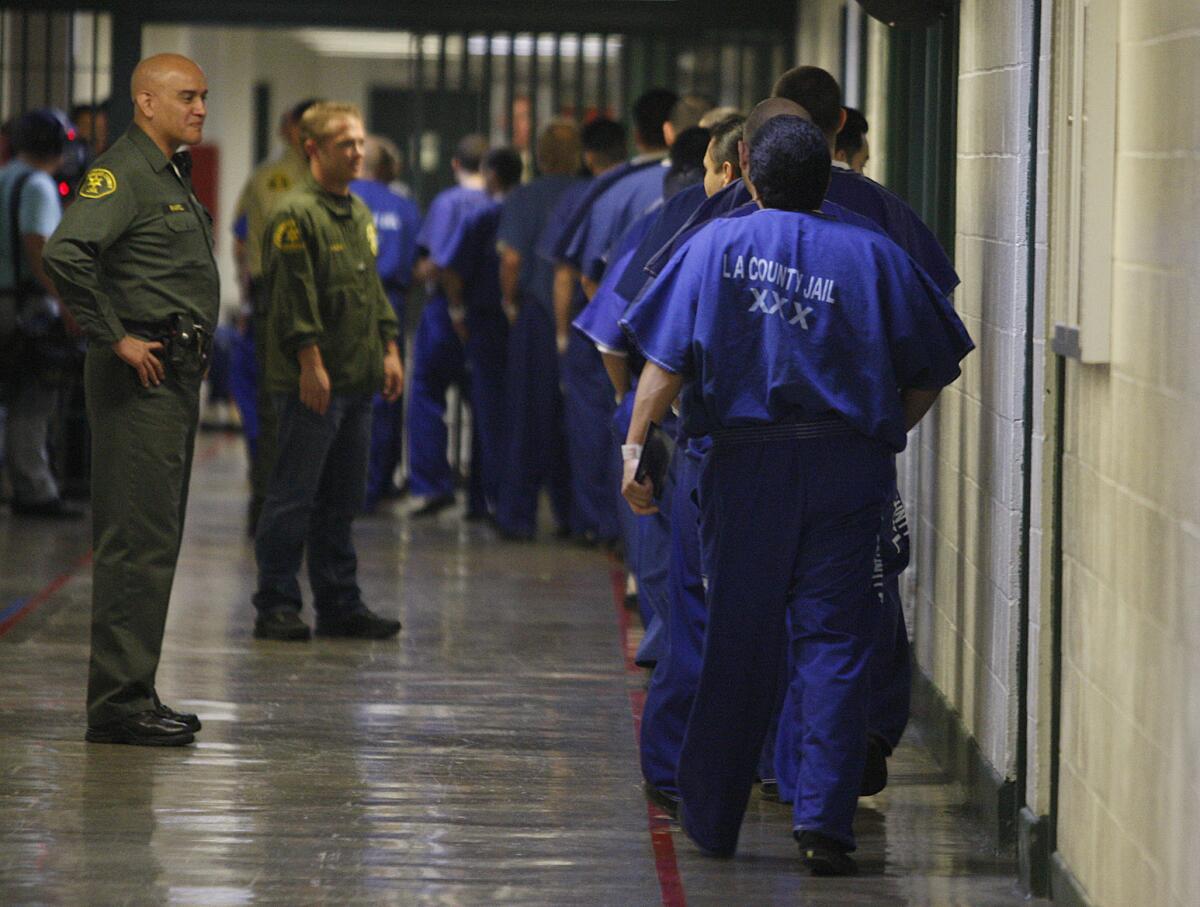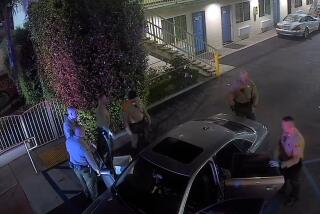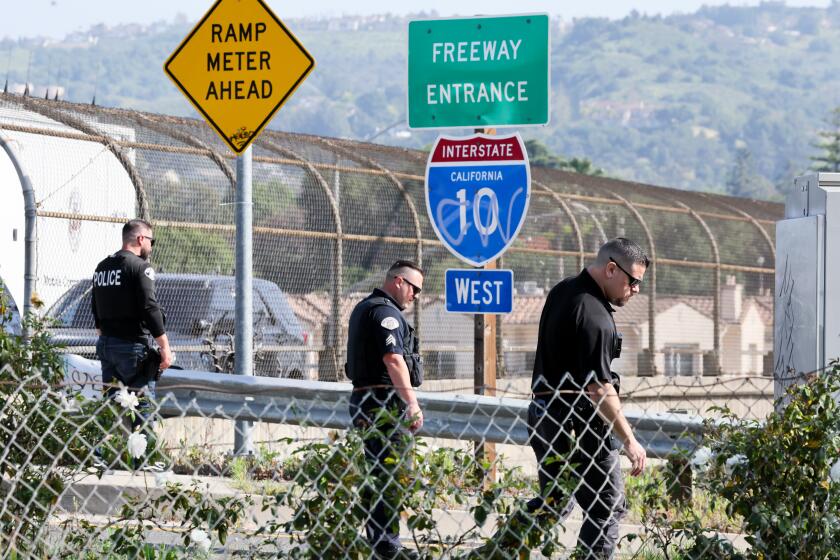Jurors to weigh deputy’s own words in LASD obstruction case

The case of Deputy James Sexton, attorneys argued Tuesday, boils down to whether you take him at his word.
Federal prosecutors who have charged him with conspiracy and obstruction of justice would like for jurors to believe at face value the Los Angeles County sheriff’s deputy’s statements to a grand jury – evidence, they say, that he did in fact conspire to thwart a federal investigation. Sexton’s own attorney, though, told jurors those very statements by his client were “puffing himself up,” “fantasy land” and “demonstrably false.”
Jurors began deliberating Tuesday on the case against Sexton, one of seven charged in the case for allegedly moving a federal informant around in the jails under false names to keep him from federal authorities. Even though the deputy elected not to testify in his own defense, jurors heard plenty from his mouth: he twice testified before the grand jury, and gave statements to federal agents and prosecutors no less than 37 times.
The panel appeared to place weight on Sexton’s grand jury testimony – just a couple hours into deliberations, they sent the judge a note asking to see a copy of the transcript.
Summing up the weeklong case, the first trial resulting from an ongoing federal probe into excessive force and corruption at Los Angeles County jails, prosecutors said the deputy had admitted that he was aware the FBI and the U.S. Marshals Service were looking for inmate Anthony Brown, who had been working with the FBI’s civil rights squad.
“Deputy Sexton knew it because he told you he knew it, he told the grand jury he knew it,” Assistant U.S. Atty. Margaret Carter told jurors in her closing argument. “Deputy Sexton explained ... he knew he would be breaking the law.”
Carter discredited claims made by Sexton’s defense that the young deputy, with three years on the job, was following orders from superiors when he moved Brown around in the jails under aliases and fake information and stood guard outside his cell. Sexton’s attorneys have called to the witness stand former Undersheriff Paul Tanaka and a sheriff’s captain, who each testified that they did not believe the steps taken by deputies to conceal Brown were obstruction and they expected their orders to be followed.
“He could’ve told Tanaka no, he could have said this is against policy,” she said, arguing that Sexton was joined the conspiracy because of his knowledge of the jail’s booking operations. “You know he went into it with eyes wide open. You know he had a choice.”
Sexton’s attorney, former U.S. Atty. Thomas O’Brien, said the deputy was “collateral damage” in a turf battle between the FBI and the Los Angeles County Sheriff’s Department, who he said had been “fighting like children.” O’Brien argued that the FBI “instigated” the battle by smuggling a phone to Brown, a move he argued was a “stupid” and “insane” because of the risks involved.
He asked jurors to “send a message” to the law enforcement agencies by rejecting the case against Sexton.
“This is a made-up case, this case is silly,” he said. “The focus should be on fighting crime, not a jurisdictional tit-for-tat.”
O’Brien said his client, at the lowest rung of a “quasi-military” organization, had followed directives from top brass who were sparring with the FBI – issuing policies that agents should not be allowed to interview inmates without approval and that an FBI agent be surveilled and investigated for smuggling the phone.
“This is a legitimate operation ordered by Leroy Baca,” O’Brien said. “This came down from the sheriff. His actions were in accordance with the sheriff’s direct orders.”
The defense attorney asked jurors to question why the people giving the orders had not been charged with crimes. Prosecutors had “over-reached,” he argued, deciding in charging Sexton: “Let’s get the overeager kid.”
He said Sexton’s own statements before the grand jury should be disregarded because it was obvious the deputy was exaggerating and speculating in an effort to please federal authorities. His client’s remarks that he and his fellow deputies’ actions amounted to “kidnapping,” and that they took Brown to a lockup at San Dimas station to get as east and away from the FBI office in Westwood, were “juvenile” and “Sexton-made,” O’Brien said.
“In his Walter Mitty mind, he’s making this stuff up, he’s trying to help them,” the attorney said. “The government is asking you to rely on statements that are demonstrably false.”
In rebuttal argument, Assistant U.S. Atty. Brandon Fox said O’Brien was only trying to get the jury to discount Sexton’s own testimony because the statements were “so damning.”
The name given internally among sheriff’s officials to the plan to move Brown around – “Operation Pandora’s Box” – was telling, he said.
“This was no turf battle, this was a conspiracy,” Fox said. “We’re going to keep the lid on Pandora’s box ... so nobody else knows about the evils within Men’s Central Jail.”
More to Read
Start your day right
Sign up for Essential California for news, features and recommendations from the L.A. Times and beyond in your inbox six days a week.
You may occasionally receive promotional content from the Los Angeles Times.







